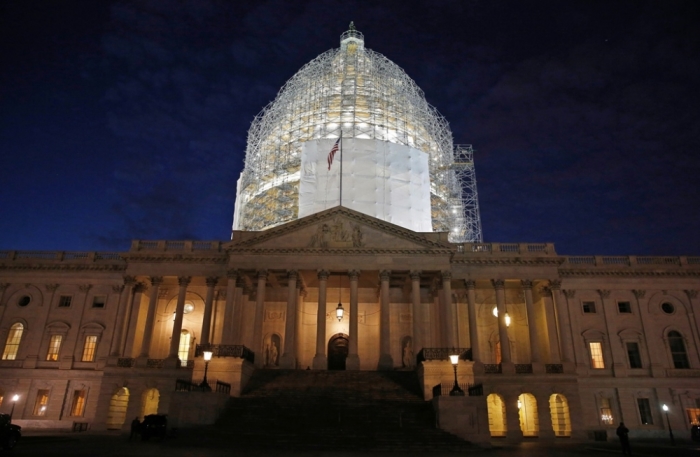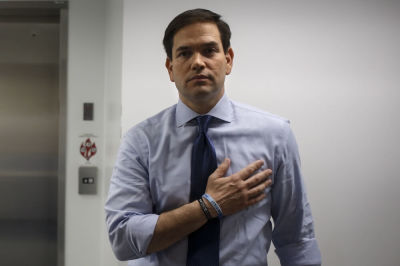Which Lawmakers Fight for International Religious Freedom? New Report Says These Two Have 'Top Scores'

A nonprofit group that advocates for religious freedom has released a first-of-its kind scorecard for federal lawmakers on international religious freedom issues based on their sponsorship of legislation, their votes and caucus work. Sen. Marco Rubio and Rep. Chris Smith, both Republican, have been ranked at the top.
The Washington, D.C.-based 21st Century Wilberforce Initiative released the International Religious Freedom Congressional Scorecard. While Rubio and Smith recieved the "top scores," another 12 lawmakers are scored a grade of A+.

All from the House, they are Reps. Robert J. Dold, R-Illinois, Anna G. Eshoo, D-California, Jeff Fortenberry, R-Nebraska, Trent Franks, R-Arizona, Zoe Lofgren, D-California, James P. McGovern, D-Massachusetts, Joseph R. Pitts, R-Pennsylvania, Dana Rohrabacher, R-California, Ileana Ros-Lehtinen, R-Florida, Brad J. Sherman, D-California, David A. Trott, R-Michigan, and Juan Vargas, D-California.
The scorecard also awarded an A grade to 25 others, 12 Democrats and 13 Republicans. While no senators besides Rubio got an A+, two senators got an A, John Boozman, R-Arkansas, and Mark Kirk, R-Illinois. You can read the rest of their names in the report.
The scores were based upon 25 bills for House members and 14 bills for senators. Points were awarded based upon how they voted on the bill and whether they were a sponsor or co-sponsor of the bill. Original co-sponsors were given more points than legislators who co-sponsored later in the legislative process. While no member had a failing grade, there were a number of D grades.
In a statement, former Congressman Frank Wolf, now Distinguished Senior Fellow with the group, called the scorecard "a much needed tool," and said it will "help recognize and encourage members of Congress who are doing vital and difficult work promoting religious freedom around the globe."
He added, "Just as important, the Scorecard will inform Americans and help strengthen their voices."
The group's president and founder, Dr. Randel Everett, said the scorecard is "an educational tool and should not be perceived as an effort to support or endorse specific legislation or candidates." He said he is "pleased that results in this Scorecard demonstrate that religious freedom issues can transcend the partisan divide."
"One-third of federal elected representatives in the United States are making international religious freedom an 'above average' priority based on the results of this Scorecard," the group noted, adding, however, that "the Senate has been less engaged in promoting religious freedom than the House. While there are individual leaders, the Senate does not have caucuses."
This lack of formal organization results in a lack of IRF leadership as a whole for the Senate, it explained.
"When measures do come up for a vote in the Senate or the House, they almost always pass with an overwhelming majority or unanimously. The challenge is moving a piece of legislation to the vote stage," the group further noted, stressing that there is ample opportunity for members of the Senate and the House to engage on IRF in the 115th session of Congress. "Seven of the 14 resolutions introduced in the Senate have not come to a vote, and nineteen of the 25 resolutions introduced in the House have not come to a vote."
The group says it scored 25 items in the House and 14 items in the Senate from the 114th Congress.
"A key achievement was the passage, with overwhelming bipartisan support, of the Frank R. Wolf International Religious Freedom Act, which broadens America's ability to advance religious freedom worldwide through enhanced diplomacy, training, counterterrorism efforts, and stronger political responses to religious freedom violations and violent extremism."
Congress also declared that atrocities perpetrated by the Islamic State terror group against religious and ethnic minorities in Iraq and Syria constitute war crimes, crimes against humanity, and genocide, the report noted.




























